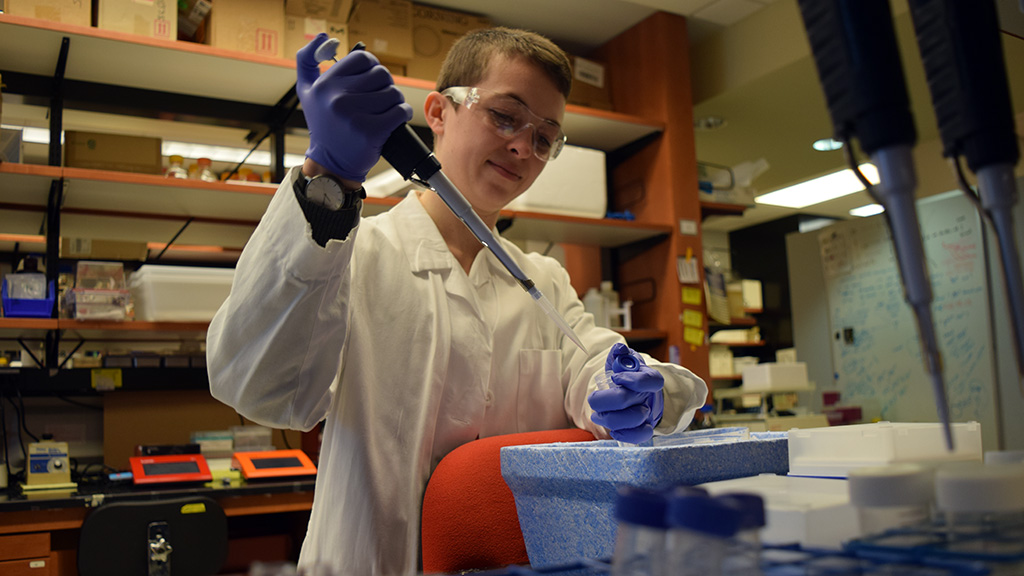Interactions between radiation and cancer metabolism
Our laboratory research focuses on the central hypothesis that altering cancer cell metabolism can increase radiation response. Over half of cancer patients receive radiation therapy during their course of treatment, but radiation therapy volumes and doses are currently largely based on anatomic location, tissue of origin, stage, and/or grade, as opposed to molecular or metabolic characteristics of tumors. Altered metabolic pathways are currently molecular targets of great therapeutic interest, as cancer cells have fundamentally different metabolism from normal cells. Tumors produce increased levels of lactate via aerobic glycolysis, a long-described phenomenon known as the Warburg effect, but significant metabolic heterogeneity among individual tumors also exists.
The laboratory research program addresses two central questions:
- What is the effect of radiation therapy on cancer cell metabolism?
- What is the effect of altered cancer cell metabolism on radiation response?
This gap in knowledge between cancer biology and clinical practice limits our ability to personalize radiation therapy for increased efficacy and decreased toxicity in individual patients. Our long-term goal is to improve the efficacy of radiation therapy by personalizing optimally targeted concurrent therapies and radiation volumes and doses based on metabolic characteristics.
We approach this goal with current projects involving characterization of the effects of radiation therapy, clinically relevant metabolic mutations, and hypoxia on metabolic balance and the effects of manipulating metabolism on radiation response. Our work utilizes a wide variety of disciplines, including molecular and cancer biology, radiation biology, physics, chemistry, and biochemistry.
Program Membership
As a member of several research and education programs at Emory University, Dr. Kesarwala plays a key role in training future cancer biologists, and in collaborating with colleagues to advance new discoveries in cancer care.
Graduate Division of Biological and Biomedical Sciences (GDBBS)
Winship Cancer Institute of Emory University
Emory University School of Medicine


